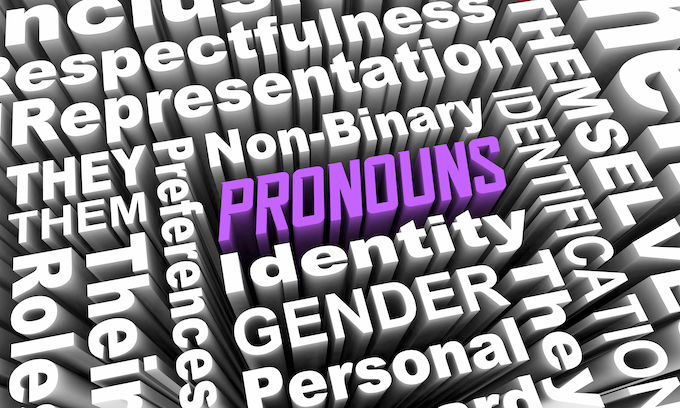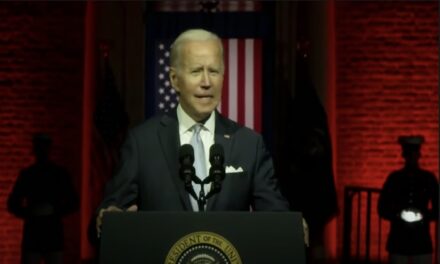San Diego became the fifth city in the nation Tuesday to prohibit future use of “he” and “she” in city laws and policies so that transgendered people feel more welcome in the city’s government.
“Using gender-neutral language in the development of our policies is the right and just path forward,” City Councilmember Sean Elo-Rivera said after a unanimous council vote. “Actions like this are about honoring the humanity of all people.”
Oakland, Berkeley, Boston and Portland have already adopted similar “inclusive language” policies regarding gender and sexual orientation. And 11 states have approved “third gender” identification cards for people who don’t identify as either male or female.
The goal is making governments more welcoming and accommodating for the roughly 1 percent of people who don’t identify as either male or female, but instead prefer to use pronouns like “they” and “their.”
Critics of such efforts say government leaders should focus their time and resources on projects and policies that affect a greater number of people in more significant ways.
National surveys have shown that just under 1 percent of U.S. residents identify as non-binary, roughly a quarter of the 4 percent to 5 percent of residents who identify as either lesbian, gay, bisexual or transgender.
Councilmember Raul Campillo, who spearheaded the new policy along with Council President Dr. Jen Campbell, said it is an important move even if it will only affect a small number of people.
“If even one more LGBTQ+ person’s well-being is improved and one less person is harmed, it will have been worth it,” he said. “While I acknowledge this is just one step toward inclusivity, I am encouraged that this action will move the city forward in addressing the need to not just promote inclusivity, but champion inclusivity.”
The gay community, including transgender people, is often the victim of hate crimes and prejudice, Campillo said.
“I want every generation of San Diegans to be able to look to their government, and read their laws, and know they are a part of it, that they are represented,” he said. “By using gendered pronouns in our policies and laws, when referring to a person or group of people, we exclude an entire set of the people we were elected to represent.”
California began offering non-binary birth certificates three years ago, and the state introduced gender-neutral driver’s licenses in 2019. In January, the U.S. House of Representatives began using non-binary, non-gendered language in official Congressional documents.
“Non-binary” refers to someone who prefers not to be known as either a man or a woman. Instead, they consider themselves in between the two genders, or not a part of any gender category at all.
Campbell, who is lesbian, praised the city’s new policy.
“This is an important step to make our city government more welcoming for all of San Diego’s people, especially those who don’t see themselves reflected in the gender binary,” she said.
Councilmember Vivian Moreno agreed.
“As we create new policies or update current ones, it’s important that they be written to ensure they are inclusive, and not exclusive, to all members of the community,” she said.
The effort is not retroactive, so gender-specific language now in place will not be changed.
The proposal requires city policies to use “they” and “their” instead of “he” and “she,” and to use words like “humankind” instead of “mankind.”
Leaders of local gay rights organizations praised the decision.
“San Diego has long been at the forefront of LGBTQ+ activism,” said Angela Wells, a city employee who leads the city’s LGBTQ+ & Ally Employee Resource Group. “Sadly, the same cannot be said for all cities across the U.S. During a time when trans rights are in jeopardy and hate crimes are far too prevalent, it’s imperative for a city to support, use and codify inclusive language.”
Luis Montero-Adams of the San Diego LGBT Community Center said the new policy is a key step.
“The center believes it’s important to move beyond using the binary of ‘he’ and ‘she’ pronouns and instead allow individuals the opportunity to confirm their name and pronouns as an individual’s pronoun description,” he said.
This story originally appeared in San Diego Union-Tribune.
©2021 The San Diego Union-Tribune. Visit sandiegouniontribune.com. Distributed by Tribune Content Agency, LLC.
—-
This content is published through a licensing agreement with Acquire Media using its NewsEdge technology.



















Sorry, I do not follow that bull **** ! I will and do use whatever WORDS I believe are appropriate when I speak.
Sooo…. let me see if I’ve got this right lol, ONE PER CENT of the population doesn’t know what they are- so the weirdos think that laws about how we are allowed to speak should be changed? Can I say BS here??????? WE are the majority- WE choose and make the rules. One per cent DOES NOTHING. They used to just be ignored, like they should be, but FJB or rather the voices that speak for him because he hasn’t got enough intelligence to, are going out of their way to destroy this fabulous country any way they can. All I can say is- COME ON 2022!!
Yes. The 99% HAVE TO coddle the insanty of the 1%, otherwise you are bigbotted, racist homophobe….
AND to think, this is San diego, HOME OF THE Pacific coast fleet…
AND GO TRUMP!! ~I CAN’T WAIT TILL OUR COUNTRY IS IN THE PRECIOUS HANDS OF INTELLIGENCE, AMERICA WILL BE SAFE AGAIN INSTEAD OF MAGGOTS WHOSE GOALS ARE DESTROYING IT.
These ungodly fools who do not want to admit what their gender is will be suprised come judgement day when God tells them they ignored his design for them. They may be a man who wants to be a woman or a woman who wants to be a man either way their bodies are what they are and it is their confused and sometimes sick minds that make them freaks of nature. God does not make mistakes.
God created mankind in his own image,
in the image of God he created them;
male and female he created them. Genesis 1:27
When God created mankind, he made them in the likeness of God.
2 He created them male and female and blessed them. Genesis 5:1-2
You are to bring into the ark two of all living creatures, male and female, Genesis 6:19
Now we see that the deranged, demonic Democrats have decided that GOD’s word no longer applies to them.
I believe this will be something that they will regret.
Let’s simplify it even further—let’s call them all idiots.
I will call them what they are. INSANE asylum escapees.!
california is a pit of sin.
for year, we’ve known how much of a pile of feeces, the entire state of commiefornia has been, but i always thought San diego, was the ONLY bright light there (due to all the military there).
THIS IS shocking to me, that this is happening. THe entire state needs to get swallowed the hell up.
If it lets them sleep better go for it. Bunch of crazy people. Serious though, 1%? Which means 1/2 of 1%.
Walrus, IMO ITS because for years, TOO MANY AMERICANS have been “AH who cares”, that the entire LGBTQ agenda has become SO MUCH of a monolith.. WE WERE TOO unconcerned, to stand UP TO IT, before now. AND THAT NEEDS TO STOP.
I’m a woman and I will will stand up when I pee. So there.
So what U R saying is U what to be a FREAK OF NATURE and not One of GODS Children. Is that what U R saying. GO
to a Country that Loves U kinda People. Like Somalia , He all is or even Cuba ! They Really love Ur kind.
IF….. you are a female and stand up when you pee, then you pee all over yourself.
When you do pee on yourself, do you tell yourself that it is raining?
Was going to move there and now I am not. San Diego’s loss. lol
You couldn’t pay me enough to even take a weekend HOLIDAY IN commiefornia. LET ALONE MOVE THERE.
I’d rather move to KABUL, than to Commiefornia.
No surprise that 4 of the 5 are on the west coast and 3 are in California. When is New York and Chicago going to join the rest? They already have a freak for a mayor.
I’m gonna go out on a limb here and say that yes, there may be some males that were been born with the wrong equipment between their legs to urinate with, may be missing an Adams apple, may have an extremely high voice and use feminine gestures. For some females, just the opposite may apply. In these cases maybe God made a little mistake and a little plastic surgery may be in order to correct the problem. That’s fine, go on ahead and live your lives but do not expect all of humanity to change ages old terms used to identity genders. Keep it to yourselves, try to live a normal life, and be happy. Don’t make the rest of us miserable because you were born in the wrong body.
What a bunch of freaking idiots.
Seems to me that only leaves one choice. It has to be either “He”, “She”, or “It”. Anything else is unnatural and artificial.
When a person sees an image that does not exist it is called an hallucination, and it is considered a form of mental illness. When a person hears something that does not exist other than in their own head, it is also considered a form of mental illness. When a person sees a penis or a vagina and does not believe what they are seeing? They have an image in their mind that does not conform to reality? My friends, that is also a form of mental illness, and I would be surprised if 1 out of every 100 people suffered from this. It is probably not even 1%, and the failure to give the proper treatment to people suffering from this is the real grievance here. Telling them they are just fine and the rest of the world is not is akin to telling the person with the hallucinations that they are real and everyone who can’t see or hear them are the ones with the illness.